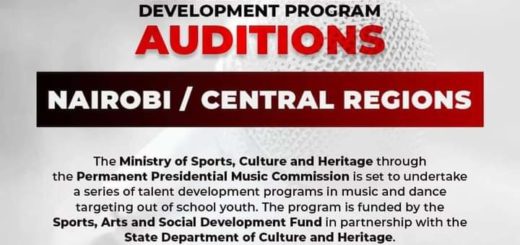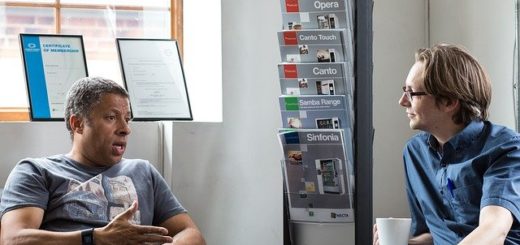Gap Analysis on Disability Inclusive Humanitarian Action (DIHA) in Eastern Africa with a focus on Protection, Food Security and Anticipatory Action – CBM
Background
CBM (Christoffel-Blindenmission Christian Blind Mission e. V.) and DAHW (German Leprosy and Tuberculosis Relief Association) are both already responding to the growing humanitarian needs in Eastern Africa with a particular focus on the specific needs of persons with disabilities.
On top of one of the worst droughts in decades and huge funding shortfalls, the escalation of war in Ukraine in February 2022 has triggered further increase of prices of staples and other goods at the Horn of Africa and many other African countries. The cost of food in the region was already on an upward trend since 2020, driven by climate shocks, locust invasions, conflict, the economic impact of the COVID-19 pandemic, and the recent Ukraine-Russia war. Thus, around 20 million persons at the Horn of Africa are already food insecure. According to the latest figures, it can be presumed that also the upcoming rainy seasons will be below average leading to an increase of people in need of food support. In addition, many water points have dried up or diminished in quality, heightening the risk of water-borne diseases, and increasing the risk of skin and eye infections as families are forced to ration their water use and prioritize drinking/ cooking over hygiene.
It can be assumed that human rights of persons in need and thereof especially persons with disabilities, children, and women and girls are constantly violated and their access to basic needs services is limited or non-existent. At the same time, in all four humanitarian intervention countries, disability-disaggregated data is not consistently collected, and therefore specific needs of persons with disabilities in any sector might be mostly neither known nor met.
Evaluation Objective, Scope and Intended Use
The purpose of the study is to better understand the existing gaps in the humanitarian response in the four countries about disability inclusion. A specific focus should be put on the Protection sector, WASH and Food Security sector. In addition, it should be also assessed to which extent disability inclusion is anchored in existing anticipatory action programming.
Scope of the study
- The evaluation will focus on Ethiopia, Kenya, Uganda, South Sudan with a specific geographical focus in each country:
- Ethiopia – Borena Zone
- Kenya – Turkana and Marsabit Counties
- Uganda –Palorinya Refugee Settlement, Obongi District,
- South Sudan – south/ southwest region which is bordering to Uganda and Kenya (Magwi County, Kapoeta South County, Kapoeta East County, Budi County, Ikotos County, Kejikeji)
- Persons with disabilities and their representative organizations must be actively involved and consulted in all stages of the study process.
Audience and Intended use of the study
- The target audience of the study report is primarily DAHW and CBM. Beyond this, the report will also be shared with organizations of peoples with disabilities (OPDs), relevant local partners, governmental stakeholders, and humanitarian organizations engaged in disability inclusive humanitarian action.
- Findings from this study will enable CBM and DAHW to underline its advocacy messages towards the inclusion of persons with disabilities in humanitarian action with a solid evidence-base.
Guiding Research Questions
Programming
- If and to what extent is disability/ persons with disabilities considered in ongoing humanitarian responses of international and national humanitarian actors in the named areas or regions?
- What is the focus of disability-specific activities in ongoing humanitarian programmes (e.g. health, shelter, WASH, etc.) in the named regions?
- Is there a focus on specific types of impairments (e.g. physical impairment, psychosocial impairment)?
- To which extent is disability inclusion anchored in existing Humanitarian Response Plans (HRPs)?
- Are there good practices/ innovative practices on ensuring access for persons with disabilities to (humanitarian) services/ support mechanisms?
- What do humanitarian actor see as the largest barriers to better mainstream disability inclusion in their work?
- What do humanitarian actor see as the largest enablers that support mainstreaming disability inclusion in their work?
- To which extent is there specific support to Internally Displaced People (IDP) and/or refugees with disabilities?
- What are the rough number of humanitarian vulnerable target beneficiaries presented by age, gender, disability type, refugee, and IDP in the named regions
- What are the priority humanitarian needs of these target beneficiaries (to be summarized by age, gender, disability type, refuge, and IDPs)
Evidence and Data
- Which qualitative and quantitative data and evidence about persons with disabilities does already exist?
- How is data and evidence used to inform humanitarian programming?
- Is quantitative data related to persons with disabilities collected systematically?
- Are actors applying Washington Group (Short) Set of Questions to collect disaggregated data on disability?
- To which extent is existing anticipatory action systems incorporating data and information on persons with disabilities?
- Is there OPDs mapping document available in the named regions?
Coordination
- Which are the key actors working on disability inclusion in the humanitarian response in the named areas or regions?
- Is there an existing working group or coordination mechanisms that addresses disability inclusion (e.g. an Age & Disability Task Force) (at national level and/or regional level/ district level)?
- To which extent is disability inclusion addressed in the (national) Protection cluster?
- How do other clusters incl. the Humanitarian Country Team address disability inclusion?
Participation
- Have OPDs the necessary capacities to navigate within the humanitarian system and to connect with humanitarian actors?
- To which extent do OPDs participate in humanitarian coordination?
- Are OPDs and/or persons with disabilities actively consulted and engaged by humanitarian actors for their programming?
- Which are the gaps and barriers that OPDs see with regard to a better mainstreaming of disability inclusion in the response?
Methodology
The study shall be implemented through:
(a) a (desk-based) analysis of relevant policies, studies, reports and documentations.
(b) Focus Group Discussions (FGD) with and with persons with disabilities from targeted communities.
(c) Key Informant Interviews (KIIs) with
- Staff from UN agencies,
- organizations of persons disabilities (OPDs)
- Staff from local and international NGOs
- Staff from local/national authorities and ministries
Expected Results
- An inception report outlining the detailed plan for the conduct of the study, incl. the methodology, related tools, stakeholder and interviewee list, and responsibilities of team members.
- A final report (around 25 to 30 pages) containing analytical elements related to the issues specified in this ToR. The report shall contain an executive summary that can be used as stand-alone document for further distribution, and a main text, both inclusive of clear and concise findings and recommendations. Annexes should include a description of methods and the survey tools used, the list of interviewees, the actual execution schedule, a summary of survey results (if applicable), a bibliography, and any other relevant materials.
- A one to two-pager as well as a PowerPoint presentation that summarize the key findings (for potential external communication)
- An online presentation of the findings to key staff of DAHW, CBM and their relevant partners.
All documents to be provided in an accessible format in English.
How to apply
Consultant (Team) Profile
- Academic degree preferably in Development Studies/ Disability inclusion/ any other related subjects.
- At least 5 years of work experience in Humanitarian Action and/or Disability Inclusion (programme design, implementation and/or assessment)
- At least 3 years of work experience with similar research projects
- Knowledge of the context in East Africa region
- Strong analytical, communication and report writing skills
- Fluent in English
- Working independently and pro-actively seeking information, while remaining culturally sensitive
Applications
Expressions of Interest shall be submitted until 22.12.2022 to Dorcas.wangu@cbm.org and shall include:
- Brief description of consultancy firm/consultant/team
- Detailed CVs of each suggested team member
- Understanding of this TOR and suggested methodology
- Availability of team and suggested schedule
- Financial proposal
Only complete applications will be considered. The contractor may ask for references and/or examples of previous work and reports during the recruitment process. The contractor reserves the right to terminate the contract in case the suggested and agreed upon team members are unavailable at the start of the evaluation and no adequate replacement can be provided.
Each team member, incl. interpreters, enumerators etc need to fully comply with and sign CBM’s or the partner organization’s Code of Conduct and Safeguarding Policy as well as commitment to data security and privacy.







